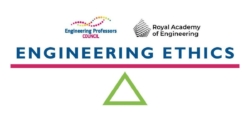 Case enhancement: Water wars: managing competing water rights
Case enhancement: Water wars: managing competing water rights
Activity: Role-play the council meeting, with students playing different characters representing different perspectives.
Author: Cortney Holles (Colorado School of Mines, USA).
Overview:
This enhancement is for an activity found in the Dilemma Part two, Point 6 section: “Role-play the council meeting, with students playing different characters representing different perspectives.” Below are several prompts for discussion questions and activities that can be used. Each prompt could take up as little or as much time as the educator wishes, depending on where they want the focus of the discussion to be.
Prompts for questions:
After discussing the case in class, and completing the stakeholder mapping activity (Dilemma Part one, Point 4 – repeated below) from the Water Wars case study, this lesson guides teachers through conducting a role-play of the council meeting scenario.
1. Discuss the stakeholder mapping activity: Who are all the characters in the scenario? What are their positions and perspectives? How can you use these perspectives to understand the complexities of the situation more fully?
2. To prepare for the council meeting role-play activity, assign students in advance to take on different stakeholder roles (randomly or purposefully), or let them self-assign based on their interests. Roles can include any of the following:
Suggestions from Stakeholder mapping activity:
-
- Data Storage Solutions
- Farmers’ union
- Local Green party
- Local council
- Member of the public
- Stakeholders who use DSS’s data storage services (such as the local hospital and schools)
- Non-human stakeholders – for example, the fish, birds and insects.
Additional stakeholders to consider:
-
- Councillors – you can choose to have them represent different political stances in your area
- Environmental representatives or activists – speaking on behalf of the ecosystem and the species within it
- Local citizens worried about their water supply
- Local citizens in support of DSS and its economic importance in the area
- DSS employee representatives – arguing on behalf of the company and their jobs
- Farmers who are worried about their crops and the water supply
- Clients of DSS who use data storage (hospitals, schools)
- Others you or your students want to include (businesses, community groups, local politicians).
3. Before the class session in which the role-play will occur, students should research their stakeholder to get a sense of their values and motivations in regard to the case. Where no information is available, students can imagine the experiences and perspectives of the stakeholder with the goal of articulating what the stakeholder values and what motivates them to come to the council meeting to be heard on this issue. Students should prepare some statements about the stakeholder position on the water use by DSS, what the stakeholder values, and what the stakeholder proposes the solution should be. Students assigned to be council members will prepare for the role-play by learning about the conflict and writing potential questions they would want to ask of the stakeholders representing different views on the conflict.
4. In class, students prepare to role-play the council meeting by first connecting with others in the same stakeholder role (if applicable – you may have few enough students to have only one student assigned to a stakeholder) and deciding who can speak (you may want to require each student to speak or ask that one person be nominated to speak on behalf of the stakeholder group).
5. As the session begins, remind students to jot down notes from the various perspectives’ positions so there can be a debrief conversation at the end. Challenge students to consider their personal biases and position at the outset and reflect on those positions and biases at the end of the council meeting. If they were a lead member of the council, what solution would they propose or vote for?
6. As the Council Meeting begins, the teacher should act as a moderator to guide students through the session. First the teacher will briefly highlight the issue up for discussion, then pass it to the students representing the Council members. Council members will open the meeting with their description of the matter at hand between DSS and other local parties. They set the tone for the meeting with a call for feedback from the community members. The teacher can help the Council members call up the stakeholders in turn. Each stakeholder group will have a chance to state their argument, values, and reasons for or against DSS’ water use. Each stakeholder will have an opportunity to suggest a proposed solution and Council members can engage in discussion with each stakeholder to clarify anything about their position that was unclear.
7. At the end of the meeting, the council members privately confer and then publicly vote on a resolution for the community. All students, no matter their role, end the class by reflecting on the outcome and their original position on the case. Has anything shifted in their position or rationale after the council meeting? Why or why not?
8. The whole class could then engage in a discussion about the outcome of the council meeting. Teachers could focus on an analysis of how the process went, a discussion about the persuasiveness of different values and positions, and/or an exploration of the internal thinking students went through to arrive at their positions.
Related materials:
This work is licensed under a Creative Commons Attribution-ShareAlike 4.0 International License.
Any views, thoughts, and opinions expressed herein are solely that of the author(s) and do not necessarily reflect the views, opinions, policies, or position of the Engineering Professors’ Council or the Toolkit sponsors and supporters.




